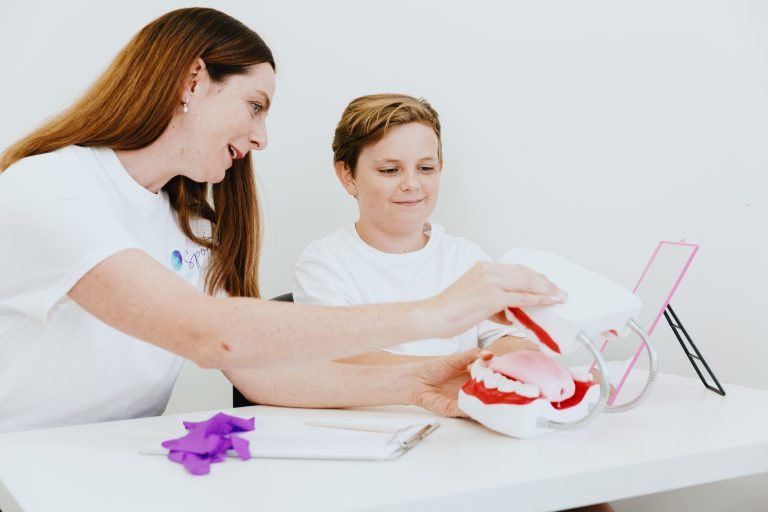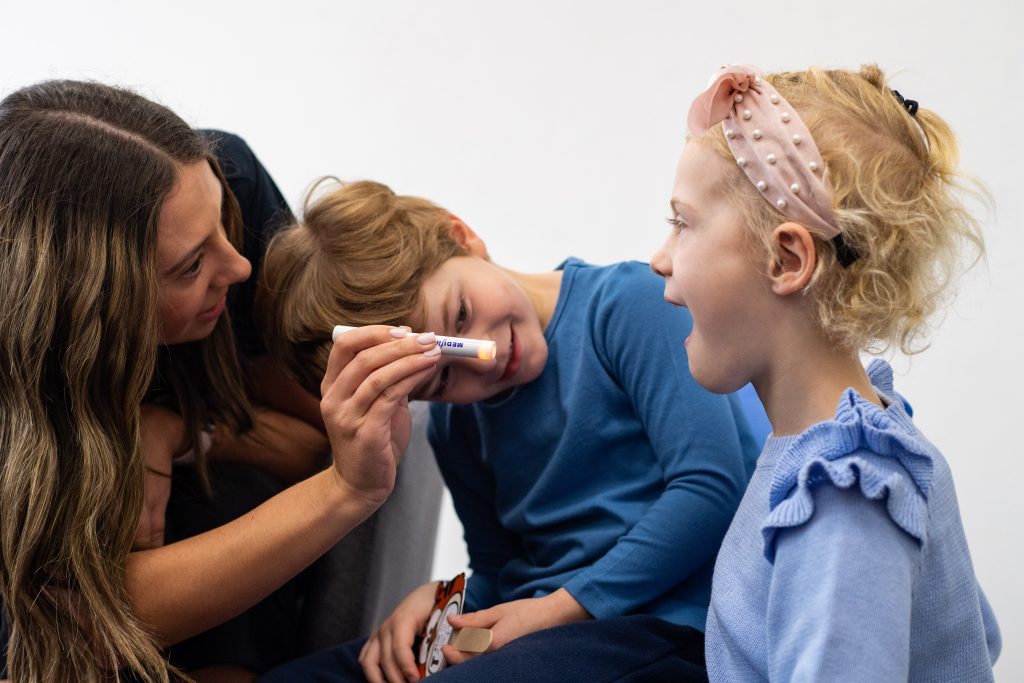Thumb sucking is a habit typically associated with children; however, a significant number of adults persist in this habit or engage in other oral habits like nail biting, hair sucking, clothing chewing, or tapping their teeth with pens. These various habits can potentially impact “orofacial myology,” which pertains to the functioning of the lips, tongue, facial muscles, and neck.

Thumb sucking is a habit that is more often seen in children, but many people continue to suck their thumbs into adulthood or have other oral habits including nail biting, sucking hair, chewing clothing or tapping their teeth with pens. All these habits have the potential to affect ‘orofacial myology’ – the function of the lips, tongue, face and neck.

These habits are typically associated with oral-motor behaviours, such as a tongue thrust swallow and a low resting tongue posture. Muscles affect bone growth, so tongue rest posture and tongue movement during swallowing have a significant impact on the development of the palate and jaw, the nasal passage and airway, and tooth alignment. The structure of the mouth, in turn, affects swallowing and speech. When a person has issues with the function of their lips, tongue and jaw, we say they have an Orofacial Myofunctional Disorder (OMD) – and the treatment is called Orofacial Myofunctional Therapy (OMT)!

As speech pathologists, clients often contact us due to concerns of speech accuracy or clarity. Sometimes, we identify an OMD that may be contributing to that speech difficulty. Astute General Practitioners, Ear Nose & Throat Specialists, Dentists and Orthodontists may also refer clients if they suspect swallowing difficulties, such as a tongue thrust swallowing pattern. They may have noticed that a patient has an open bite or malocclusion, the pain report pain when chewing, general pain in their temporomandibular joint (TMJ), or symptoms such as grinding their teeth.

Supporting our clients’ communication and health through speech and swallowing therapy is always our principal goal, and ensuring elimination of oral habits is an essential part of our work if we are to expect results with traditional treatment.

Speech Pathologists at Spot Therapy Hub have always offered clients advice to help break sucking habits. Many people start their journey with bitter polishes, reward systems, and even wearing thumb guards. Education regarding the negative side effects of thumb sucking is important, however, it is often not enough on its own. This is because there are usually underlying reasons of prolonged oral habits!! Our job is to screen for underlying issues and refer you to the right professionals, to build a care team, and set our clients up for success.

There are physiological changes that occur when kids (and adults) suck their thumbs. There is a calming chemical called beta endorphin that is produced, which attaches to opiate receptors in the brain. This means sucking is very calming and may even be pain relieving.
We find many of our clients have a history of inflammatory conditions, such as eczema, allergies or asthma. Many kids have a history of chronic ear infections and glue ear. Reflux, bowel motility and gut issues are common too. Sometimes, kids are sucking to cope with the physical discomfort associated with these conditions.
Many individuals who have sucking habits are also mouth breathers. This means they have a low resting tongue posture and the tongue is not in contact with their palate at rest, as it should be. There are nerve endings in our palate that seek stimulation. If the brain does not get that feedback from the tongue because the individual has an airway issue and has to breathe through their mouth, they may use their thumb to get the sensory input their brain is seeking. For years, dentists have used splints at the front of patients’ mouths to prop their jaw forward and open their airway – could it also be that people are splinting their jaw and opening their airway by thumb sucking? Many professionals now believe so!
Finally, we find that some clients have tethered oral tissues (TOTs). Many of us have heard about tongue ties, but that term does not really capture the anatomical diversity that exists in the population – and the diversity that exists in terms of functional impact! Some people have restriction in the posterior portion of their tongue (not a ‘tied’ tongue tip). When assessing function, we look at an individual’s ability to suction their whole tongue against their palate. Anterior protrusion, or the ability to poke the tongue out, is not a good diagnostic indicator). We also look at their ability to use their tongue in isolation from the jaw, in a variety of movement patterns. If we see functional signs and symptoms of TOTs, we’ll refer you to a dentist with specialist experience in structural assessment of the tongue, lips and jaw – we can have tethering of our lips and cheeks as well!
Eliminating a sucking habit is a big commitment, but one that is worthwhile as the end goal will usually be achieved by resolving underlying chronic health issues. We’ll take a systematic approach that suits the needs of you or your child, to ensure we have success, the first time. This means we can achieve your speech and feeding goals faster, and with better outcomes.
Looking for support with your child’s thumb sucking habit?